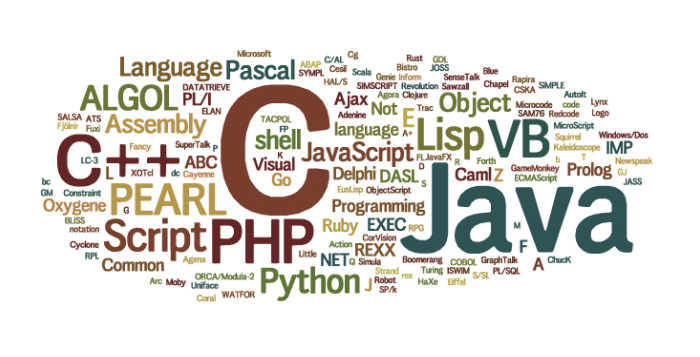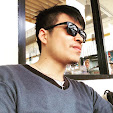125 years of Arsenal history - 1976-1980
Arsenal began the 1975/76 season, much to the chagrin of many Gunners fans, without Charlie George, who’d departed to Dave Mackay’s Derby County. “Bertie (Mee) and I seldom speak anymore,” admitted George.
The Gunners were going nowhere fast. On the face of it, Mee’s side contained a blend of experience (Brian Kidd, Alan Ball and George Armstrong) and youthful promise (David O’Leary, Frank Stapleton, Liam Brady) but the Gunners still flirted dangerously with relegation.
The team crashed out of both domestic cup competitions in the opening rounds, and ultimately, a narrow victory over relegation-haunted Wolves proved pivotal, and was enough to push the Gunners into 17th place. It was all proving too much for a tearful Mee, who announced to a stunned press corps that he would be standing down at the end of the season.
A fresh approach was needed, and although several big names were linked with the post, including Real Madrid’s highly-rated coach Miljan Miljanic, the board plumped instead for former Gunners skipper Terry Neill, who’d recently had an unhappy spell as manager at Tottenham.
Ex-Liverpool boss Bill Shankly wrote: “I can’t believe how far from grace Arsenal have fallen over the last four years,” but it’s worth noting that fellow ‘fallen giants’ Manchester United and Tottenham suffered the ignominy of Second Division football in the seventies, a fate which Arsenal managed to avoid.
Neill set about the task of restoring the Gunners’ fortunes with gusto, and signed iconic Newcastle striker Malcolm Macdonald for an eye catching fee of £333,333 in time for the 1976/77 season. He also added Stoke’s Alan Hudson to his squad. Neill was able to reap the dividends from the promising crop of youngsters whom Mee had begun to nurture.
After a disappointing home defeat against Bristol City on the opening day of the season, Neill omitted John Radford from the starting line-up, and paired Stapleton alongside Macdonald. The partnership worked well. In typically brazen ‘Supermac’ fashion, he boasted that he’d nab 30 goals that season, and was almost as good as his word, eventually netting 29 in all competitions, including a televised hat-trick against former side Newcastle. Stapleton, who worked hard on his pace and his touch, weighed in with a grand total of 17, and Arsenal clambered into eighth place by the end of the campaign.
It was a massive improvement, and there was greater balance within the team. Neill signed out-of-favour Tottenham central defender Willie Young, and despite a disastrous debut against Ipswich at Highbury, the tough Scot soon became an excellent foil for the pacy and skilful O’Leary. The full-backs, Pat Rice and Sammy Nelson also worked well in tandem, and Brady’s stellar displays earned plaudits from football fans everywhere.
Yet Neill occasionally appeared to struggle with the players who were not much younger than him. Those Gunners fans who relished the thought of a Brady–Ball midfield partnership were disappointed when the disenchanted World Cup winner departed to Southampton, and Neill sent home Hudson and Macdonald from the close season tour of Singapore and Australia for breaching club discipline.
Despite the occasional murmurs of discontent, Neill was unquestionably moving the Club in the right direction. His side, now coached by the returning Don Howe, finished fifth in 1977/78, and so the team qualified for the UEFA Cup, but the real drama lay in the domestic cup competitions.
The Gunners were edged out 2-1 on aggregate by Liverpool in the League Cup semi-final, but after cruising past Orient in the FA Cup semi-final at Stamford Bridge, reached Wembley to face Bobby Robson’s emerging Ipswich Town. Arsenal were hot favourites, but faced several injury problems in the lead up to the game. Macdonald’s knee was now locking regularly during games, and both Brady and Alan Sunderland were also carrying knocks. The injuries were telling, and after Brady was substituted by Graham Rix, he admitted: “I’ll never try and underplay an injury again.” Roger Osborne scored Ipswich’s winner, and a crestfallen Neill claimed: “We’ll be back next year.” All managers say that, but on this occasion Neill was as good as his word.
The Gunners had a white knuckle ride to the 1979 FA Cup final. Arsenal disposed of Third Division Sheffield Wednesday at the fifth attempt, eased past Notts County, and then edged out League champions Nottingham Forest at the City Ground courtesy of Stapleton’s majestic header. Smart finishes by Stapleton and Sunderland against Wolves in the semi-final saw Arsenal return to Wembley to face Dave Sexton’s Manchester United.
There was a tighter look about the Gunners’ midfield, after Neill added Brian Talbot to the squad, and it was the former Ipswich man who opened the scoring after a cut-back from David Price. A sinewy sortie by Brady saw him set up Stapleton to make it 2-0, and after 87 minutes, the Arsenal fans inside Wembley were already chanting their victory songs. But goals from Gordon McQueen and Sammy McIlroy pulled it back to 2-2, and as Willie Young recalled: “We were gone. We were finished. If it had gone to extra-time, United would have destroyed us.”
Brady had other ideas, setting off on another slaloming run, and slipping the ball wide to Rix. Rix lofted the ball over the flapping Gary Bailey’s head, for Sunderland to sweep home Arsenal’s dramatic winner. Skipper Rice, the only survivor from Mee’s Double side, lifted the trophy.
Neill spoke of lifting the title next season, but he now faced two massive challenges. Firstly, Macdonald was forced to retire due to persistent knee injuries, and Brady announced his intention to quit Arsenal at the end of the 1979/80 campaign, frustrated that the Gunners had tailed off in seventh in the league.
It was arguably the most dramatic, yet ultimately fruitless campaign in Gunners’ history. The team played a record breaking 70 matches, reached the FA Cup and Cup Winners Cup finals, yet ended up empty-handed, eventually missing out on third place and UEFA Cup qualification.
Arsenal’s epic four game FA Cup semi-final encounter with champions Liverpool remains possibly the best, most tightly-contested encounter ever played in the competition. Talbot’s header at Coventry’s Highfield Road finally settled matters, and Paul Vaessen’s late header in Turin silenced the whistling Juventus fans, and took the Gunners into the final. It was ironic that Brady would sign for Juve just weeks after the victory.
Ultimately, fatigue caught up with Arsenal. Trevor Brooking’s header won the FA Cup final for Second Division West Ham, and Rix’s missed penalty enabled Valencia to claim the Cup Winners’ Cup.
“We’ve so much to be proud of," Terry Neill told his exhausted troops at the end of the campaign, “but I know that these last three seasons may well be judged as a case of being ‘so near yet so far.’”
HISTORY BRIEF
Arsenal fans nearly suffered the ignominy of seeing Charlie George go to Spurs in ‘75. Only a last-minute intervention by Dave Mackay whisked him to the East Midlands
Malcolm Macdonald was Liam Brady’s biggest fan on the playing staff. “Liam could do things with a football that the rest of us could only dream of. He was a true artist and a poet with the ball,” claimed Supermac
After criticising Juve’s Roberto Bettega for his horrific foul on David O’Leary at Highbury, Terry Neill was greeted with “Neill the dog” banners in the return leg in Turin

































